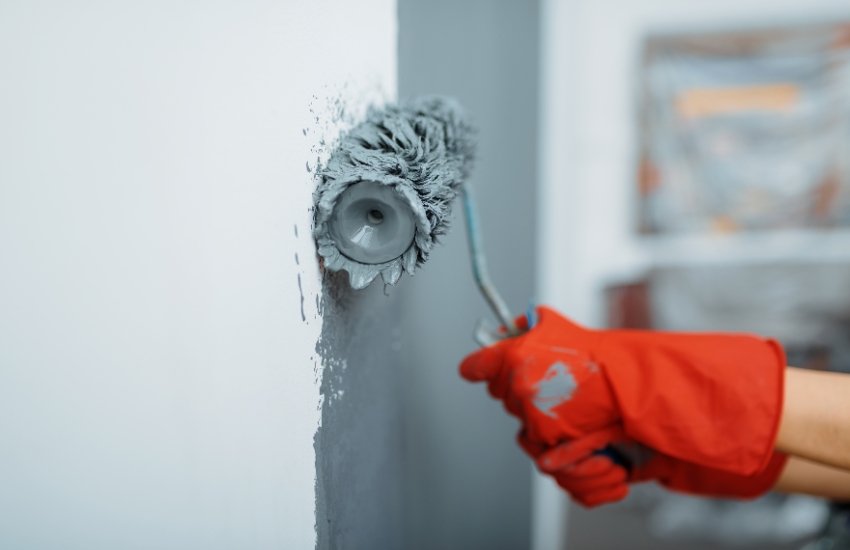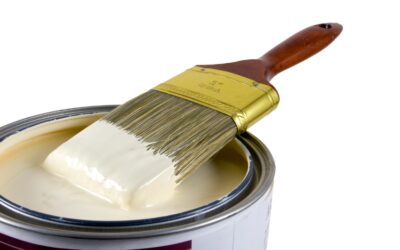The Importance of Industrial Painting for Long-Lasting Protection

When it comes to industrial facilities—factories, plants, storage tanks, pipelines, or structural steel—durability and protection matter just as much as functionality. Harsh environments, heavy machinery, and constant exposure to moisture, chemicals, and extreme temperatures can quickly degrade surfaces, leading to safety hazards, regulatory issues, and costly repairs.
That’s where industrial painting comes in. More than just adding color, industrial coatings are a key line of defense that protect your infrastructure, extend service life, and ensure safe, efficient operations.
1. Protection Against Corrosion and Rust
Corrosion is one of the most common (and expensive) threats in industrial environments. Steel, iron, and other metals are especially vulnerable to rust, particularly in humid, coastal, or chemical-heavy settings.
Industrial Painting Solutions:
-
Anti-corrosion primers
-
Zinc-rich coatings
-
Epoxy and polyurethane topcoats
These systems seal surfaces from air, moisture, and chemical exposure—slowing or even preventing rust formation.
Fact: Corrosion costs U.S. industries billions each year in structural damage, equipment failure, and downtime. Investing in industrial painting significantly reduces this risk.
2. Chemical and Environmental Resistance
Industrial environments often involve exposure to oils, solvents, acids, or high humidity. Standard paint doesn’t stand a chance—but specialty coatings do.
Protective Coatings Can Resist:
-
Chemical spills
-
Abrasion and high-traffic wear
-
UV damage
-
Extreme temperatures
-
Water and vapor intrusion
Using the right high-performance paint system ensures surfaces remain intact and easy to clean—even under harsh conditions.
3. Safety and Regulatory Compliance
Industrial painting isn’t just about protection—it’s also about meeting industry regulations and maintaining a safe workplace.
Applications Include:
-
Marking hazardous zones or equipment with high-visibility colors
-
Applying non-slip coatings to floors, ladders, or platforms
-
Fire-retardant coatings to meet building codes and fire safety standards
-
OSHA-compliant color coding for pipelines, tanks, and safety signage
These elements aren’t optional—they’re often required by law. A qualified industrial painting contractor ensures your facility complies with safety standards.
4. Extending the Life of Equipment and Infrastructure
When surfaces are properly coated, they last significantly longer. Whether it’s a structural beam, a warehouse floor, or a tank lining, industrial painting adds years of life by protecting against:
-
Mechanical wear and impact
-
Weathering
-
Corrosion and pitting
-
Mold and mildew
This reduces the frequency of replacements or major repairs, ultimately lowering total maintenance costs.
5. Improved Aesthetics and Professional Image
While protection is the primary goal, don’t underestimate the visual impact of a clean, freshly painted industrial space.
-
It shows clients, partners, and inspectors that your facility is well-maintained.
-
It improves employee morale and pride in the workplace.
-
It enhances organization through clear zone markings and consistent branding.
Paint = professionalism. In environments where safety and precision are non-negotiable, a well-maintained facility reinforces your commitment to both.
6. Tailored Coatings for Specific Industries
Industrial painting isn’t a one-size-fits-all service. Different industries require different coating solutions.
Examples:
-
Food and beverage: Anti-microbial, non-toxic coatings for processing areas
-
Pharmaceutical: Sterile, dust-resistant finishes
-
Oil and gas: High-temperature and chemical-resistant coatings
-
Manufacturing: Floor coatings to withstand forklift traffic and impact
Hiring an experienced industrial painting contractor ensures you get the right materials for your specific needs.
7. Minimized Downtime with Professional Application
Industrial painting professionals know how to plan around your operations—working off-hours, in phases, or using quick-drying products to minimize disruption.
The result?
-
Faster project turnaround
-
Less downtime
-
Long-lasting results with minimal rework
Final Thoughts
Industrial painting is more than a surface treatment—it’s an investment in the longevity, safety, and performance of your facility. With the right coatings, you protect your assets, stay compliant, and ensure your operations continue without costly interruptions.


